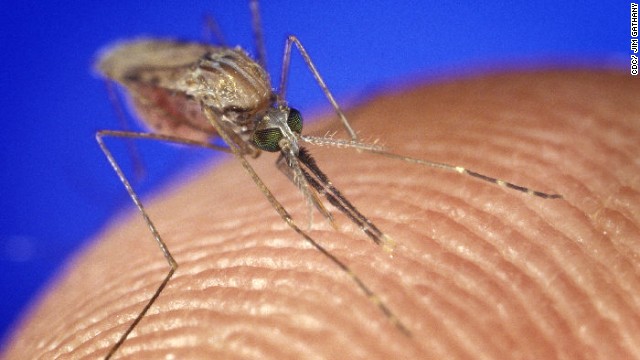Results 1 to 1 of 1
Thread Information
Users Browsing this Thread
There are currently 1 users browsing this thread. (0 members and 1 guests)
-
08-08-2013, 03:49 PM #1
U.S. reports malaria vaccine breakthrough
U.S. reports malaria vaccine breakthrough
By Matt Smith and William Hudson, CNN
updated 2:53 PM EDT, Thu August 8, 2013

This type of mosquito A. gambiae can transmit malaria
STORY HIGHLIGHTS
- U.S. malaria study finds success with intravenous vaccine
- The results are an advance but require more tests, experts say
- Malaria sickens an estimated 200-million plus every year, killing about 1 million
(CNN) -- U.S. researchers say they've successfully tested a vaccine for malaria on a small group of volunteers and hope to conduct large-scale tests soon.
The vaccine involves multiple, intravenous injections of a weakened form of the disease, scientists from the National Institutes of Health, the Navy, Army and other organizations reported Thursday. Though the results were promising, more extensive field testing will be required, the researchers wrote.
The mosquito-borne tropical disease kills about 1 million people a year and sickens more than 200 million. Dr. William Schaffner, head of the preventive medicine department at Vanderbilt University's medical school, called the results "a scientific advance" -- but it may be eight to 10 years before the vaccine can be scientifically proven, approved and distributed.
Study: Malaria-infected mosquitoes more attracted to human odor
"This is not a vaccine that's ready for travelers to the developing world anytime soon," Schaffner told CNN. "However, from the point of view of science dealing with one of the big three infectious causes of death around the world, it's a notable advance. And everybody will be holding their breath, watching to see whether this next trial works and how well it works."
The findings were published Thursday by the peer-reviewed journal Science. The trials involved 57 subjects, including 40 who received the vaccine, between October 2011 to October 2012.
Students invent award-winning soap to tackle malaria
Researchers reported that the six volunteers who received five intravenous doses of the vaccine did not contract malaria when exposed to the microscopic parasite.
Of the nine who received four doses, three contracted the disease.
Schaffner, who was not part of the study, said previous attempts using injections into skin or muscle didn't work. Multiple, intravenous injections are "a heck of a way" to administer a vaccine, but "desperate times call for desperate measures," he said.
Katherine McPhee says 'no more' to malaria
http://www.cnn.com/2013/08/08/health/malaria-vaccine/index.html?eref=googletoolbarNO AMNESTY
Don't reward the criminal actions of millions of illegal aliens by giving them citizenship.
Sign in and post comments here.
Please support our fight against illegal immigration by joining ALIPAC's email alerts here https://eepurl.com/cktGTn


 LinkBack URL
LinkBack URL About LinkBacks
About LinkBacks




 Reply With Quote
Reply With Quote


Ukraine-Israel Bill Secretly Funds Biden's invasion!
04-24-2024, 12:01 PM in illegal immigration Announcements